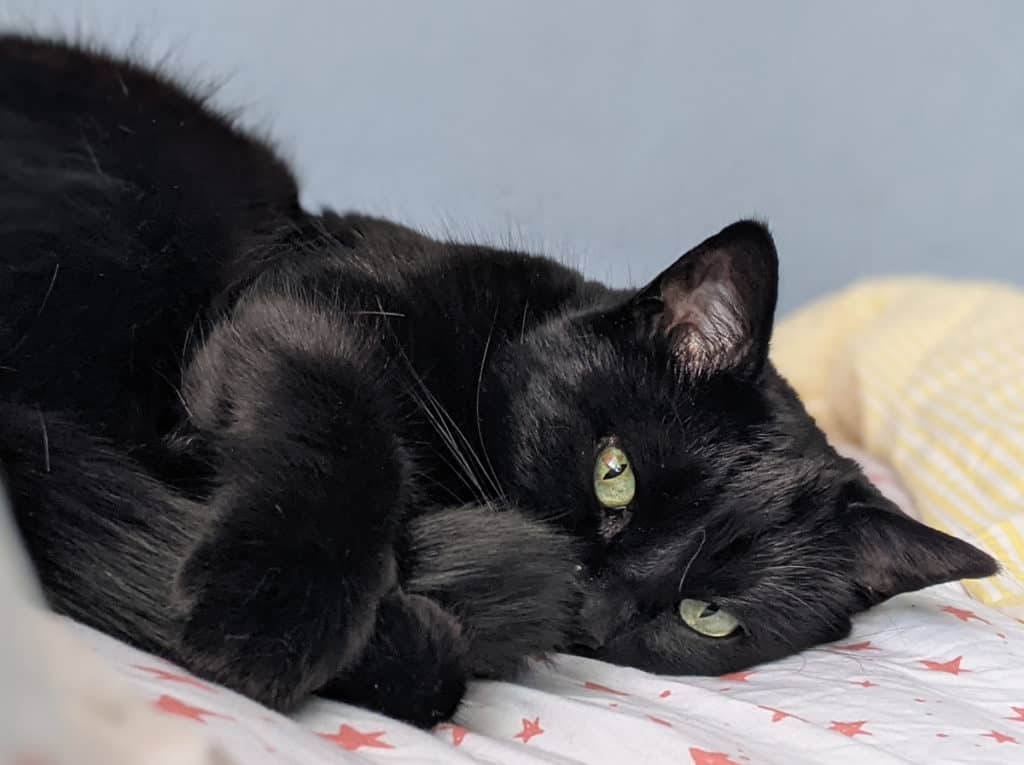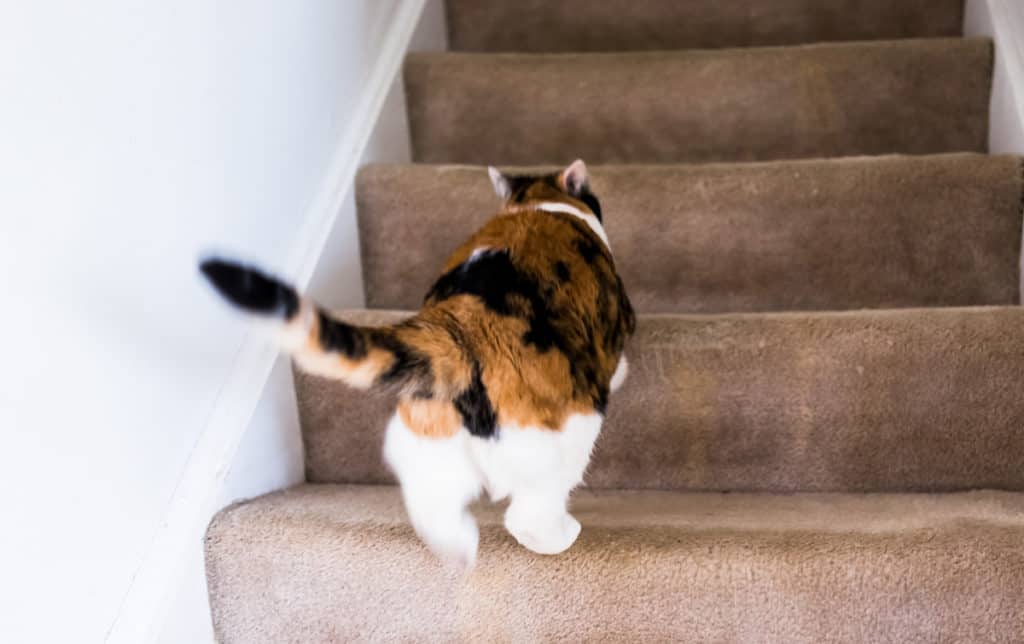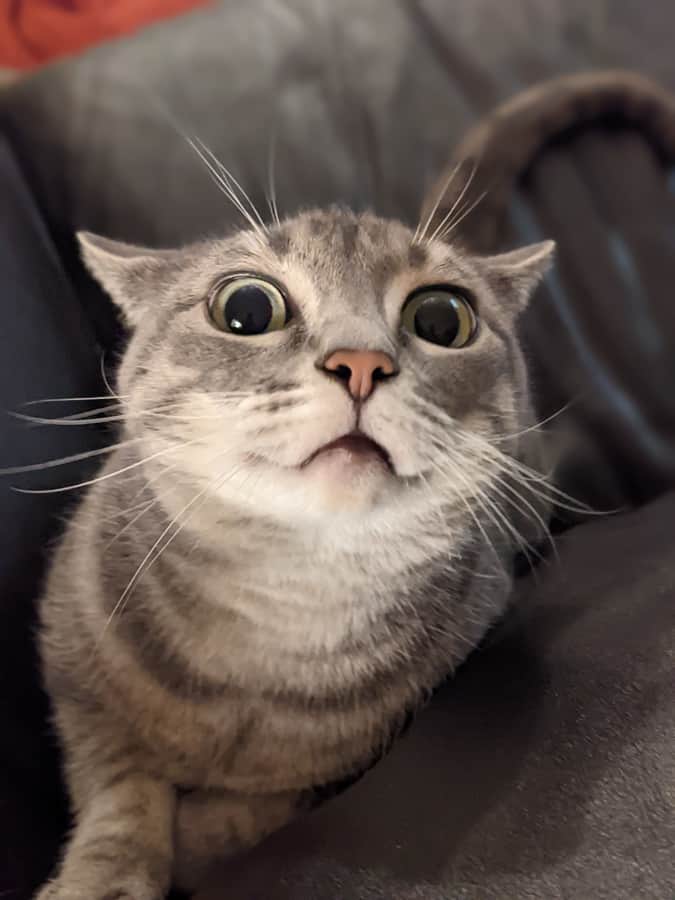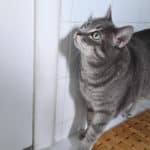Ah, the zoomies. Sometimes known as the midnight crazies, If you’re a cat owner, you’re most likely conversant with the absurd spurt of massive energy that cats frequently have. After this, it’s game on! Your cats runs around at incredible speed throughout the house, on top of furniture, knocking things over, making a mess, and a lot of noise.
Most of the time, cats tend to have this spurt of energy in the evening and during the night, when you’re trying to sleep. But why does this happen? Here we answer the question of: why do cats get the zoomies at night?
So, why do cats get the zoomies at night?
At night is when the house is most quiet, and if your cat sleeps during the day, she will be looking for something to do now that she’s not sleepy.
Domestic cats are naturally crepuscular. This simply means that they usually are active in the early morning and evening hours of the day. One reason for this is that this is when rodents are most active; thus, cats will hunt more successfully.
While the house cat doesn’t need to hunt, cats are born to be active and “hunt” for their prey. Thus, the nighttime zoomies. These are the most obvious reasons, but there are other reasons why your cat is having a burst of energy at night.

What is the scientific name for cat zoomies?
The scientific name for the activity that happens when a cat gets the zoomies is called frenetic random activity periods or FRAPs for short.
Too much energy
One of the common reasons your cat has zoomies is excess energy. Cats tend to sleep and rest for a significant part of the day to preserve energy for brief, active periods. And, if your cat doesn’t work out, she will have to find a different way to eliminate this pent-up energy, leading to the zoomies.
Regardless of its age, your cat will most likely have the zoomies from the excess energy, though they might be more prominent in kittens and younger cats who have a lot more energy to release.
Ensure to engage your pet with workouts during the day, as this lets them use up that accumulated energy without re-arranging and tearing the house apart. Besides, you’ll get the chance to bond with your feline over the workout period, leading to you and them having a healthier and happier life.

Severe Pain
Even though this is not common, it might be the reason your cat’s getting the zoomies. For this reason, it is vital to understand the behaviors that may signify your cat is in pain, allowing you to take them to the vet soonest possible.
Again, if your pet has itchy skin or fleas, running around the house may be their way of attempting to fight the feeling. Plus, if she is aging, she might have sight or hearing problems and get agitated by things easily, thus frantically racing throughout your home.
So, how can you tell if your cat is in acute pain or simply needs to release some energy? Look out for other signs like excess licking, scratching, and irritability. Hence, if your cat is licking a specific part of the body often and has zoomies, it might be a sign of anxiety or pain.
If your cat’s zoomies seem out of the ordinary or are of concern, it’s always best to have a vet check our your pet to make sure there isn’t anything health wise that needs to be addressed.
Zoomies after using the litter box
Some cats usually enjoy one victory lap or more after visiting the litter box. If your cat gets the zoomies after this, ensure to check for signs of constipation like pooping somewhere other than the litter box, change in poop, vomiting, or discomfort.
Also check to make sure there isn’t any poop that is stuck to your cat’s behind. Sometimes cats will race around in an attempt to dislodge anything that is stuck on them.
On the other hand, if your pet doesn’t show these symptoms clearly, it’s always a good idea to check with the vet, particularly if the post-poop episodes are new. Similarly, if you confirm that your cat has no issues, ensure the litter box is frequently washed.
Cats might have zoomies after defecating to run away from an odor. So, wash the litter box to prevent urinary issues and other bacterial infections and encourage her to go to the litter box instead of your carpet or bed.
How to prevent your cat’s night zoomies
Cat owners are familiar with the night zoomies all too well. Your feline can rest for about 18 hours during the day, though it appears like the only time they want to release extra energy is when you’re sleeping.
At this point, they’re more than eager to hunt and ready to play, but you want your beauty to rest. So, how do you prevent these night zoomies?
First, ensure your cat is working out adequately with frequent play sessions. Bring out your kitty’s favorite toy, and launch play sessions of about 15 to 20 minutes daily to release the pent-up energy. One survey of cat owners found that adequate play time with cats resulted in fewer behavioral problems.
Second, it is equally essential to offer mental satisfaction and exercise. For this reason, don’t simply fatigue your pet, but play in a strategic and helpful manner. This is because your pet’s play sessions are just as mental exercises as they are physical workouts.
Third, you can assist in exhausting your cat using mental stimulation. Test several toys that let your kitty play and award her for the effort to achieve this. Bringing out her favorite toy before nighttime will come in handy in exhausting that excess energy and, with any luck, lead to a full night’s sleep for both of you.
When should you contact a vet?
If you see your cat experiencing zoomies excessively, be careful, and check out for other strange behaviors that may show that there’s something wrong. Some of the signs to keep an eye out for are loss of weight, unusual vocalization, and changes in how your kitty utilizes the litter box; at this point, you should consult a vet immediately.
Use your understanding of your cat’s natural behaviors and physical appearance to help you decide when a vet checkup is needed.
Final word
That being said, if your feline is not yet neutered, make sure it’s done promptly. The benefits of spaying are immense, some of which include a significant reduction of unwanted and unusual behavior like spraying, aggressiveness, and howling, which could be why your pet’s having zoomies at night.
Read next: Do Cats Always Land On Their Feet?
References
Parker, M., Lamoureux, S., Challet, E., Deputte, B., Biourge, V., & Serra, J. (2019). Daily rhythms in food intake and locomotor activity in a colony of domestic cats. Animal Biotelemetry, 7 (1), 1-14. https://doi.org/10.1186/s40317-019-0188-0
Strickler, B. L., & Shull, E. A. (2014). An owner survey of toys, activities, and behavior problems in indoor cats. Journal of Veterinary Behavior, 9(5), 207-214. https://doi.org/10.1016/j.jveb.2014.06.005







